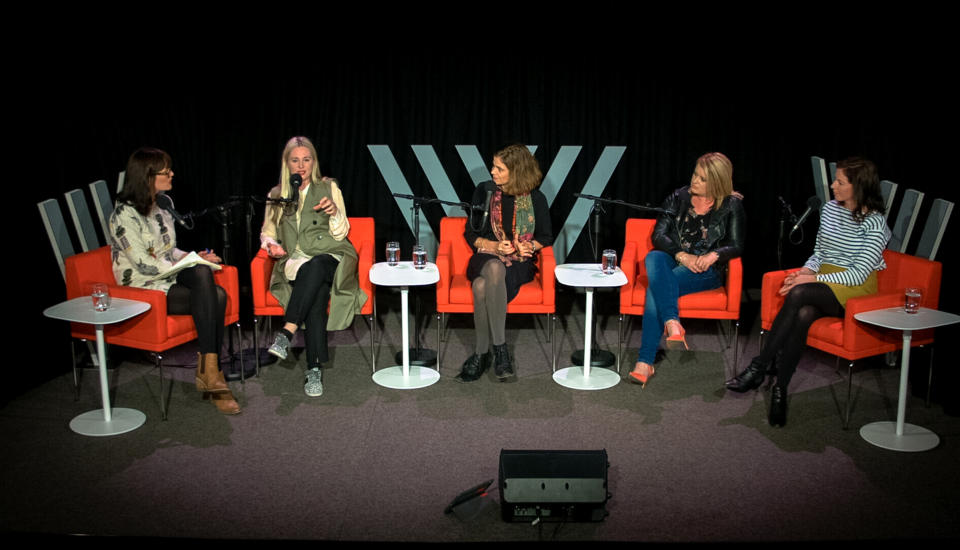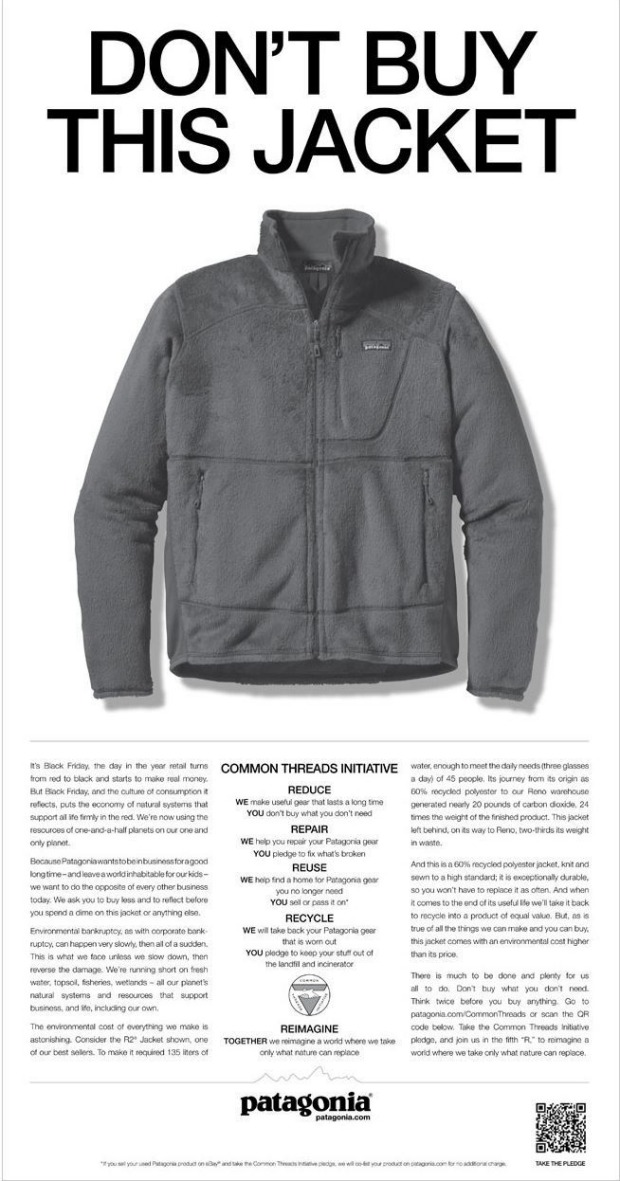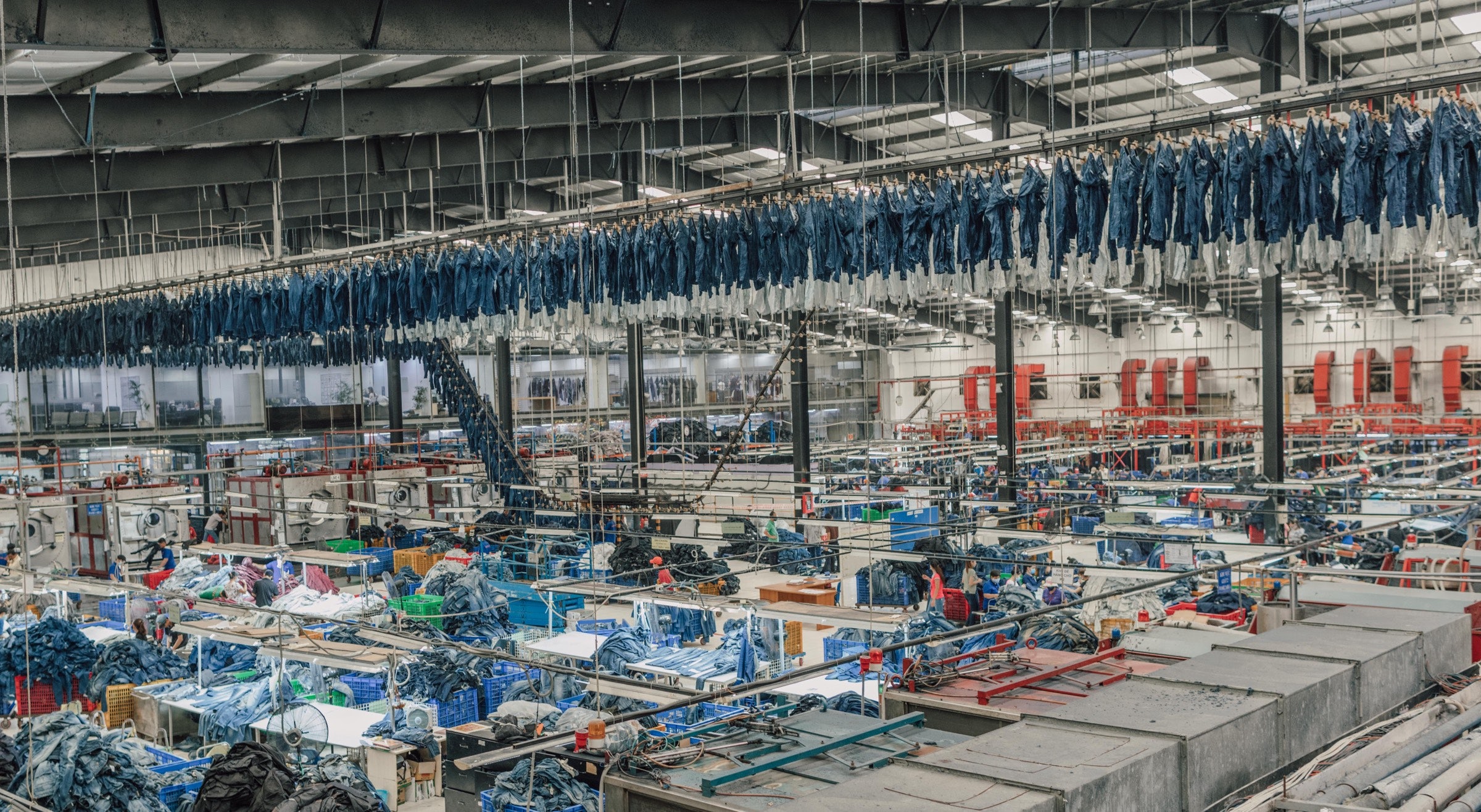QUESTION TIME September 19, The Wheeler Centre, Melbourne, Australia
A live discussion on fast fashion at the Wheeler Centre for Books & Ideas in Melbourne.
We touch on a whole lot of issues from slow fashion, overconsumption and waste, to what brands are doing about supply chain transparency, as well Australia’s move towards a Modern Slavery Act, the role of magazines in the fashion transparency conversation, and even how body mapping technology might reduce dead-stock.
WHO’S TALKING?
Clare Press presenter of the Wardrobe Crisis podcast.
Madeleine Morris is a Melbourne-based reporter for ABC television’s 7.30. She was formerly a presenter for the BBC in London and reported from dozens of countries before returning to her native Australia.
Clara Vuletich Apart from being a woman who can seamlessly insert the word “behemoth” into a sentence, she is also a sustainable fashion consultant with a PhD in sustainable textiles. Clara has worked with H&M and Kering.
Rebecca Hard is CEO of Sussan. The Sussan Group is the Australian women’s fashion retailer that owns retail brands Sportsgirl, Sussan and Suzanne Grae. Sussan has more 183 stores across Australia as well as an e-commerce platform. It's pretty cool of Rebecca to put her hand up to take part on a discussion like this. Sussan is working hard on transparency and communication around ethical production, they pay a living wage to garment factory workers and scored a commendable B in the 2017 Ethical Fashion Report published by Behind the Barcode/Baptist World Aid Australia. You can access the full report here.
Jessica Perrin is one of the co-founders of Not My Style, a UK-based ethical shopping app that “tells you how much your favourite fashion brands share about how they treat the women and men who make our clothes.” The app launched after a successful Kickstarter campaign last year. Go Jess!
The Wheeler Centre for Centre of Books, Writing and Ideas was founded in 2008 when Melbourne was designated a UNESCO City of Literature. They run wonderful, thought-provoking, inspirational events around conversations, readings, storytelling, Q&A sessions and workshops. They say, “We are dedicated to being the cornerstone of Australia’s literary activity: by supporting the health and vitality of the writing and ideas ecosystem, we continue to contribute to a deeper thinking society and enable the story-telling and story-making that builds communities around the sharing of ideas and conversations.” We say, The Wheeler Centre is rad, basically. If you're in Melbourne, make sure you check out their program of events.
LINKS TO MAKE YOU THINK...
H&M’s Global Change Award is an award for innovation in the sustainable fashion space supported by the H&M Foundation. Each year 5 entrants are shortlisted, and this year one of those was from Australia. Hurrah. Scientists, led by Professor Xungai Wang, from Deakin University’s Institute for Frontier Materials, have worked out how to dye new denim with old denim. Their ‘Circular Denim' project turns unwanted jeans into a fine powder that can be used in digital printers as pigment.
Denim factories are turning parts of the Yangtze river in China bright blue. Sandblasting techniques have been associated with cancer clusters in garment workers, and even the cleanest, greenest denim laundries use large amounts of precious water. It’s not surprising that many brands are keen to address denim’s environmental footprint. Game-changer innovations include laser distressing and recycled cotton, but until now no one’s come up with anything quite like this. #madeinmelbourne
The Pesticides Action Network (PAN) challenges the global proliferation of pesticides.
Zara’s parent company Inditex's sales just grew by 9%. Read the story here.
In 2012 Greenpeace's commissioned and published the report Toxic Threads: The Big Fashion Stitch-Up, which "exposed the links between textile manufacturing facilities using toxic chemicals and water pollution." The report discovered toxic phthalates , cancer-causing amines from azo dyes and hormone disrupting NPEs in garments by multinational brands. You can download it here. Who cleaned up? Who didn't bother? Find out which brands have since lifted their game here.
DO NOT BY THIS JACKET was a radical, subversive ad campaign by Patagonia, which ran in the New York Times on Black Friday, 2011. Read all about it here.
Clara mentions the Tenjin factory in Japan which makes recycled polyester fibre. Here's a fascinating article about how Japan approaches recycling in general. Bionic Yarn is another good one. You might have heard of them? fact the Pharrell Williams is one of their major shareholders.
Everlane’s Radical Transparency
Everlane is an American fashion company based on the concept "radical transparency". As they explain it: "We believe our customers have a right to know how much their clothes cost to make. We reveal the true costs behind all of our products—from materials to labor to transportation—then offer them to you, minus the traditional retail markup." They also share details of their factories and suppliers. "We spend months finding the best factories around the world—the same ones that produce your favorite designer labels. We visit them often and build strong personal relationships with the owners. Each factory is given a compliance audit to evaluate factors like fair wages, reasonable hours, and environment. Our goal? A score of 90 or above for every factory."
WE ALSO MENTIONED...
Kate Kennedy, the fashion academic investigating how 3D technologies are changing the landscape of commercial and functional design and what this means for the next generation of technicians and fashion designers. Kate's work was part of the Slow Fashion Studio at the recent Fast Fashion: The Dark Side of Fashion exhibition at the RMIT Gallery, Melbourne.
The ETHICAL FASHION INITIATIVE is a beautiful organisation that hooks up artisanal micro-producers with big fashion. Clare interviews founder Simone Cipriani in her Wardrobe Crisis book. Have you read it yet? Order yours here!
Citizen Wolf's T-shirts are made bespoke, to eliminate waste.
Citizen Wolf makes bespoke T-shirts. Yes, that's possible. Read Clare's Sydney Morning Herald column about them here.
Good On You is Australia's first conscious shopping app, free to download, that rates brands according to their ethical performance when it comes to people, planet and animals.
Find yourself dithering over a new bomber jacket at the mall, and you can tap in the brand name to find out how it performs. Country Road, for example, has "strong labour policies and prohibits use of hazardous dyes". Its rating of 4 out 5 is "good". Last time we looked, Sportsgirl, on the other hand, was rated "not good enough" – it received 2 out of 5 because it "does not communicate enough about its environmental policies and practices". This is entry level stuff (you can always dig deeper) but Good on You can help you make more informed choices in a simple, user-friendly way.
THANK YOU FOR JOINING THE WARDROBE CRISIS CONVERSATION. NEW EPISODES FOR YOU EVERY WEDNESDAY. CAN YOU HELP US SPREAD THE WORD? WE'D LOVE YOU TO TELL YOUR FRIENDS & LEAVE A REVIEW IN APPLE.










